Table of Contents
Introduction to Space Exploration’s Allure
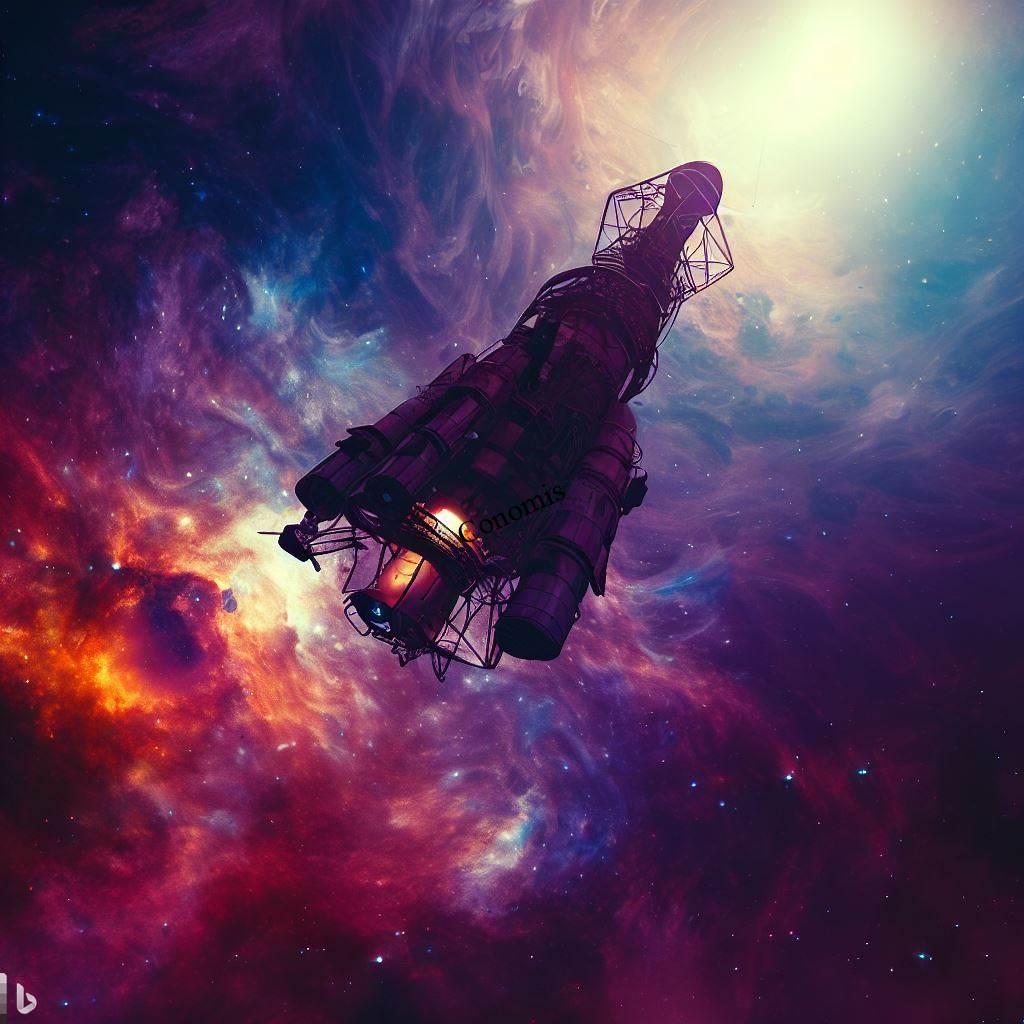
Humans have been fascinated by the immensity of the cosmos and our role within it since the dawn of civilization. Space exploration aims to further human knowledge, broaden our understanding of the universe, and push the boundaries of what is possible. With each new discovery, our comprehension of the cosmos expands, prompting astonishment and curiosity.
Humanity has long been enamored with space exploration, which has caught our imaginations and pushed scientific progress in our quest to discover the secrets of the cosmos. Government agencies such as NASA and Ros cosmos have historically led the way in pushing the boundaries of knowledge in space exploration, undertaking ground-breaking missions and extending our understanding of the universe.
However, the face of space exploration has shifted dramatically in recent years. The introduction of private firms, most notably Elon Musk’s innovative company SpaceX, has resulted in a revolution in the field. By introducing fresh perspectives and methodologies to space exploration, these companies open up new avenues for research and commercialization. SpaceX has given the industry new life and untapped promise with its daring promises to decrease the cost of space travel and construct colonies on Mars. Other participants’ substantial contributions, such as Blue Origin and Virgin Galactic, have promoted healthy competition and driven further growth.
Furthermore, the merging of machine learning and artificial intelligence (AI) has vastly expanded the potential for space exploration. While machine learning enables computers to learn from data and improve their performance over time, artificial intelligence (AI) refers to the development of computer systems capable of doing tasks that previously required human intelligence. This strong combination elevates space exploration to a new level.
The use of AI in astronomy has the potential to drastically alter how data is processed and understood. AI systems may filter through massive amounts of data from telescopes, satellites, and observatories to uncover trends, detect anomalies, and make predictions. This ability allows researchers to derive key inferences from massive datasets, allowing for ground-breaking discoveries and expanding our understanding of the universe.
AI also enables the development of autonomous spacecraft that can navigate, monitor their health, and perform complex maneuvers without the need for constant human intervention. This autonomy enhances the effectiveness and precision of space missions, allowing them to conduct scientific study and explore inaccessible places more efficiently.
The marriage of private corporations and artificial intelligence in space exploration ushers in a new era of possibilities, pushing us deeper into unexplored territory and offering new insights that widen our understanding of the universe. We embark on an exciting journey that will bring together technology, entrepreneurship, and scientific advancement as we push the boundaries of space exploration. The combined efforts of governments, commercial companies, and technological advancements like as artificial intelligence (AI) will uncover the mysteries of the universe, and the future of space exploration holds immense promise.
Government organizations have been pioneers in space exploration.

Throughout history, governments have led space exploration endeavors. NASA (National Aeronautics and Space Administration) and Roscosmos, among others, have played critical roles in the launch of ground-breaking missions such as manned spaceflights, lunar landings, and interplanetary probes. These groups have amassed a plethora of knowledge and expertise, laying the framework for future research.
SpaceX and the Rise of Private Companies
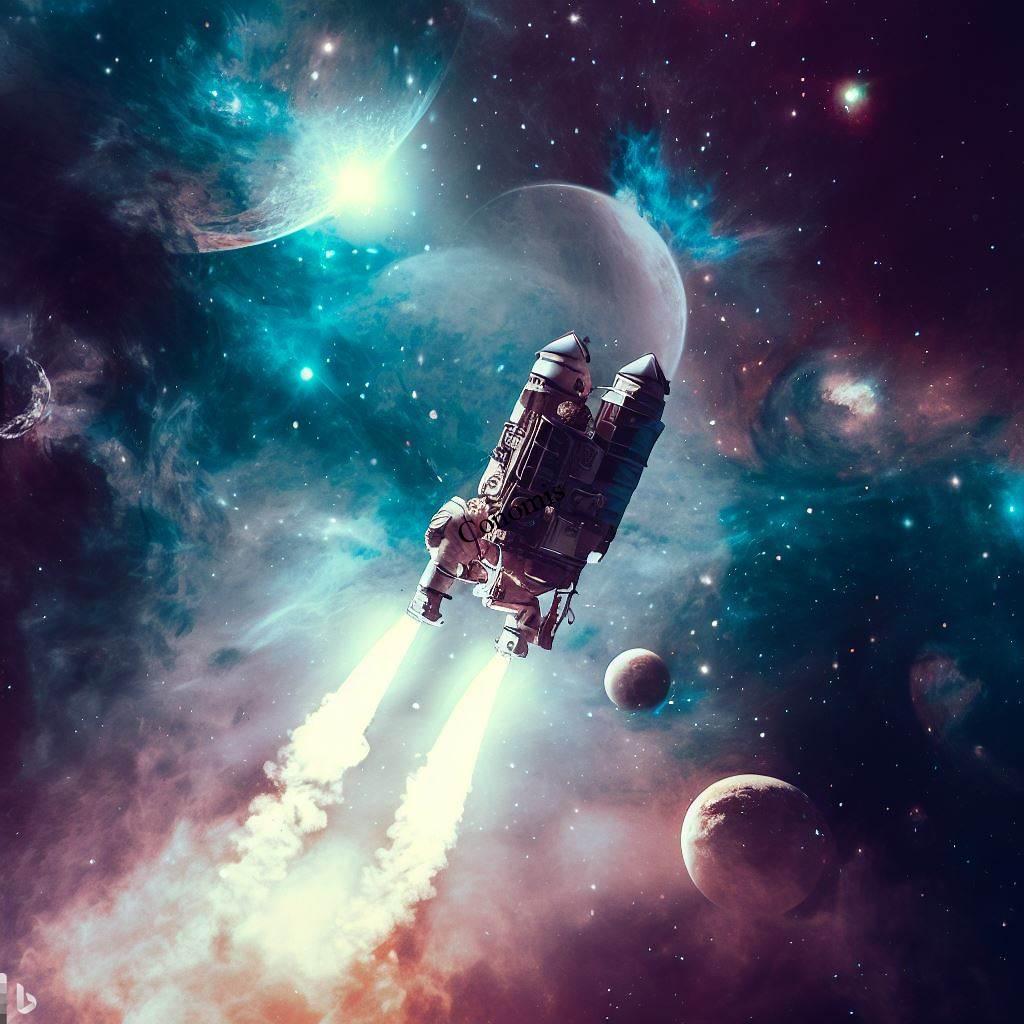
With the entrance of private businesses, the environment of space exploration has recently changed dramatically. Among them, Elon Musk’s SpaceX has emerged as a key actor in this new era. SpaceX has reignited creativity and passion within the sector, with grandiose goals ranging from decreasing the cost of space travel to constructing colonies on Mars. However, SpaceX is not the only company making progress in this industry; companies such as Blue Origin and Virgin Galactic have also made significant advances, providing good rivalry and pushing further research.
SpaceX, in particular, has drawn attention because to its groundbreaking successes. By developing reusable rocket technology and successfully launching and landing spacecraft, SpaceX has dramatically reduced the cost of space flights. This breakthrough opens up new possibilities for more frequent and affordable access to space. Elon Musk’s ambition to colonize Mars has sparked global interest, served as a catalyst, and motivated scientists, engineers, and enthusiasts alike.
Blue Origin, another well-known commercial space firm, is vigorously developing space exploration. Blue Origin focuses on the development of reusable rocket systems and envisions millions of people living and working in space in the future. By successfully testing vertical takeoff and landing capabilities, Blue Origin has cleared the road for a more accessible and sustainable space business.
Richard Branson, a multibillionaire, founded Virgin Galactic, a space travel company. The company offers suborbital journeys to give paying customers an extraordinary experience of weightlessness and a look into the wonders of space. Virgin Galactic’s successful test flights and expansion plans aim to broaden access to space travel and offer space exploration to the general population.
The involvement of private enterprises in space exploration has sparked a new wave of innovation and accelerated development. Because of their new technologies and entrepreneurial zeal, these companies have upended the traditional government-dominated model of space exploration. This paradigm shift has resulted in a dynamic, competitive environment that stimulates continual progress and pushes the boundaries of what is possible in space.
Advantages of Independent Space Exploration Firms

The involvement of commercial corporations enhances the field of space exploration in a variety of ways. Two significant advantages are the rapid advancement of technology and the surge of entrepreneurial spirit. Profit-driven private firms have the ability to take risks and investigate other options. Because of their agility and zest for innovation, they can develop space exploration swiftly.
Furthermore, private firms encourage healthy competition, which can lead to price reductions and better accessibility. As the cost of space missions declines, more people and organizations will be able to participate, allowing for a more diverse and cooperative exploration ecology. Private enterprises can frequently pursue long-term goals and initiatives that outlast political cycles, ensuring continuity and long-term success.
Integration of AI and machine learning

As commercial space exploration grows, another revolutionary force on the horizon is the integration of artificial intelligence (AI) and machine learning. Machine learning enables computers to become more efficient through data-driven learning, whereas artificial intelligence (AI) entails the development of computer systems capable of doing tasks that previously required human intelligence.
With the combination of AI and machine learning, a new era in space exploration is about to begin. These technologies have enormous potential for increasing our understanding of the universe and moving us further into uncharted terrain.
Processing and comprehending massive amounts of astronomical data necessitates the application of artificial intelligence. Scientists may utilize AI algorithms to uncover trends, detect anomalies, and estimate the future using data from telescopes, satellites, and observatories. Astronomical research could experience a revolution as a result of AI-powered data processing, which would expand knowledge and our understanding of the universe.
Furthermore, machine learning enables the development of autonomous spacecraft capable of independent navigation, health monitoring, and complex maneuvers. These autonomous gadgets operate with minimum human intervention, increasing the efficacy and accuracy of space activities. They enable more effective exploration of faraway places as well as more precise scientific studies aboard spacecraft.
The imaginative ideas of private firms and the computational power of AI are shaping the future of space exploration. As we journey further into space, the use of AI and machine learning will undoubtedly increase our understanding of the universe, revealing new vistas of knowledge and paving the way for previously imagined scientific advances.
The Role of AI in Space Exploration

AI has enormous potential for space exploration in a variety of ways. It has the potential to significantly improve data processing and interpretation, allowing researchers to obtain valuable insight from huge amounts of astronomical data. Artificial intelligence (AI) systems may recognize patterns, predict events, and aid in the discovery of celestial occurrences, thus advancing science and expanding our understanding of the universe.
Machine Learning for Astronomical Data Analysis

Telescopes, satellites, and observatories generate massive amounts of data for astronomy. Machine learning algorithms can quickly process this data, identifying celestial objects, mapping cosmic structures, and categorizing astronomical events. By automating these processes and freeing up valuable human resources, AI accelerates astronomical research.
Unleashing the Potential of Self-Driving Spacecraft
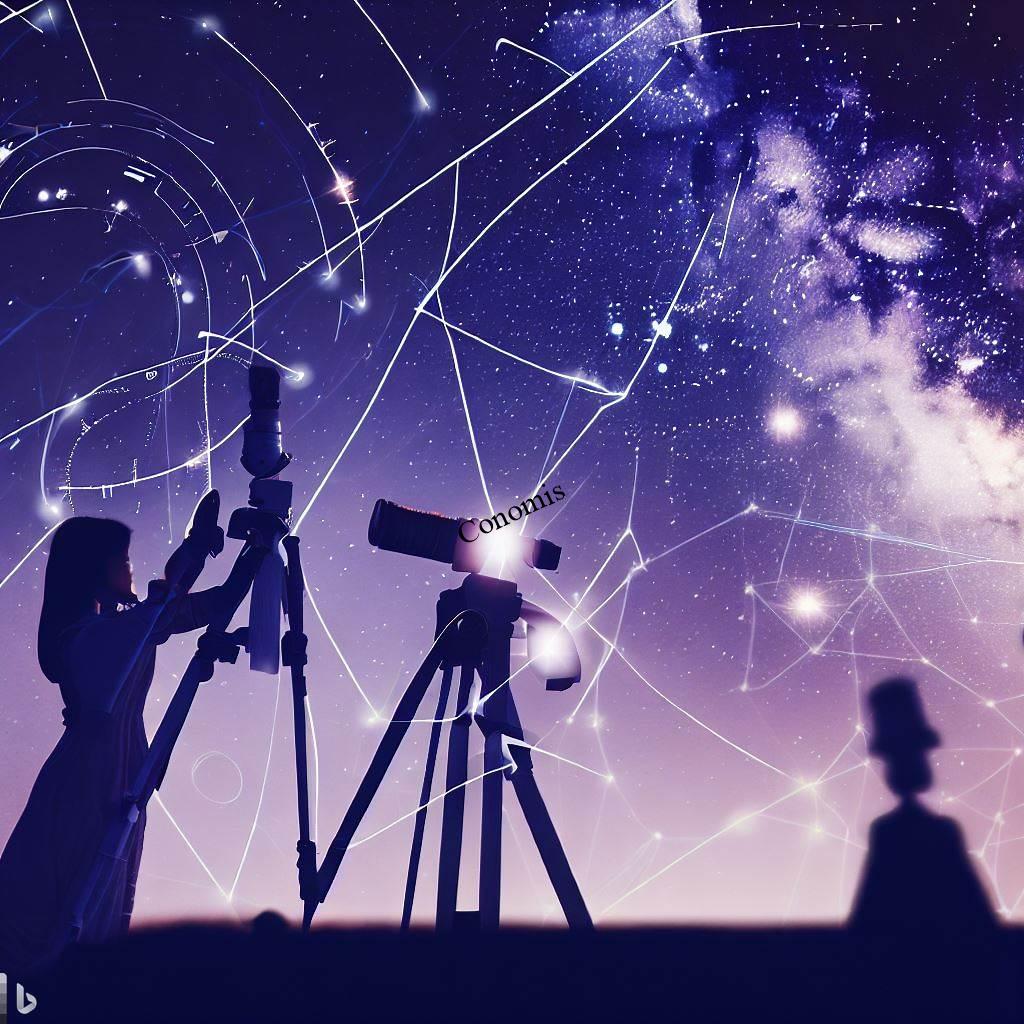
AI is also required to enable autonomous spaceship operations. Advanced AI systems allow spacecraft to operate autonomously by navigating, tracking vital signs, and performing challenging maneuvers. This autonomy allows spacecraft to operate more efficiently, adapt to unexpected situations, and precisely study remote places.
AI-Enhanced Robotic Missions
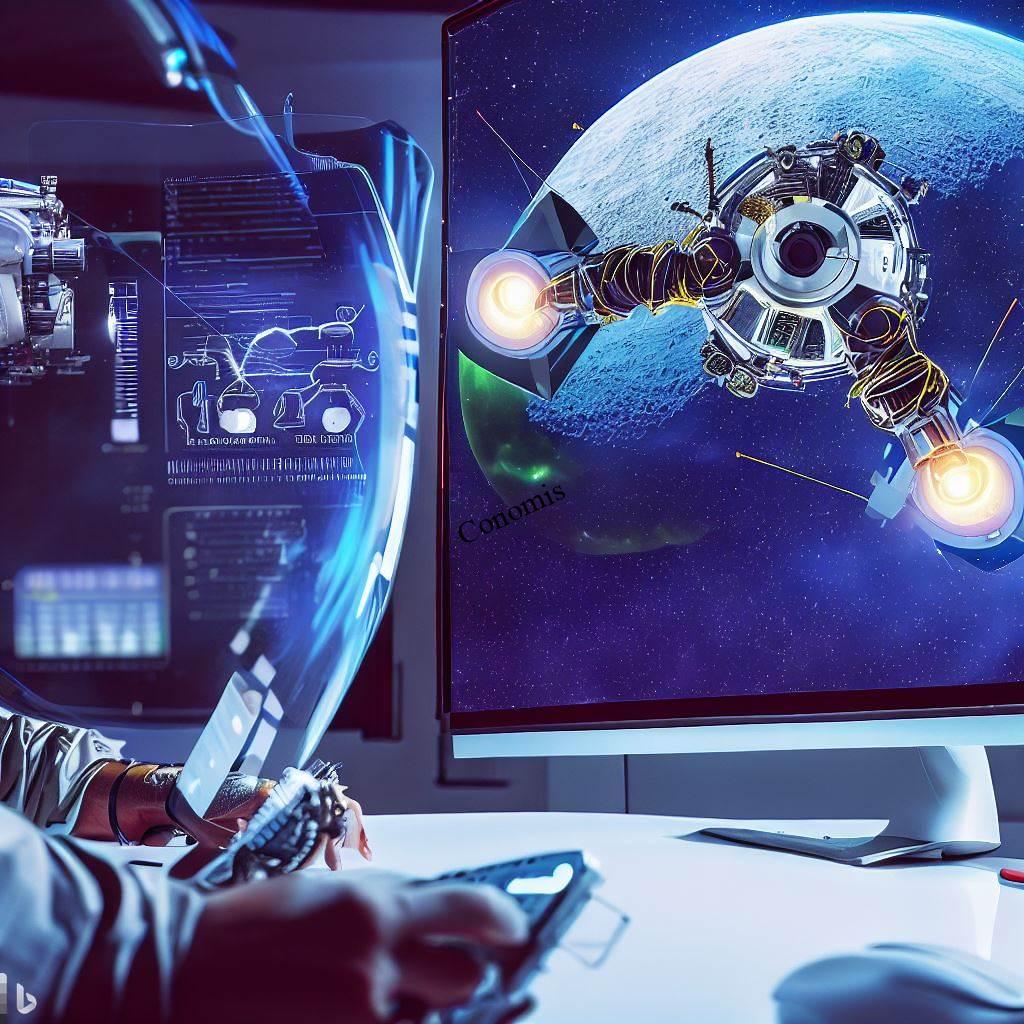
Robotic missions, including as rovers and landers, have tremendously benefited in the study of our solar system’s planets and moons. These robotic explorers employ artificial intelligence (AI) and machine learning to negotiate treacherous terrain, inspect things, and make sound decisions in real time. By applying AI, these missions improve in capacity, output, and success in their scientific aims.
The quest for extraterrestrial life and the development of artificial intelligence
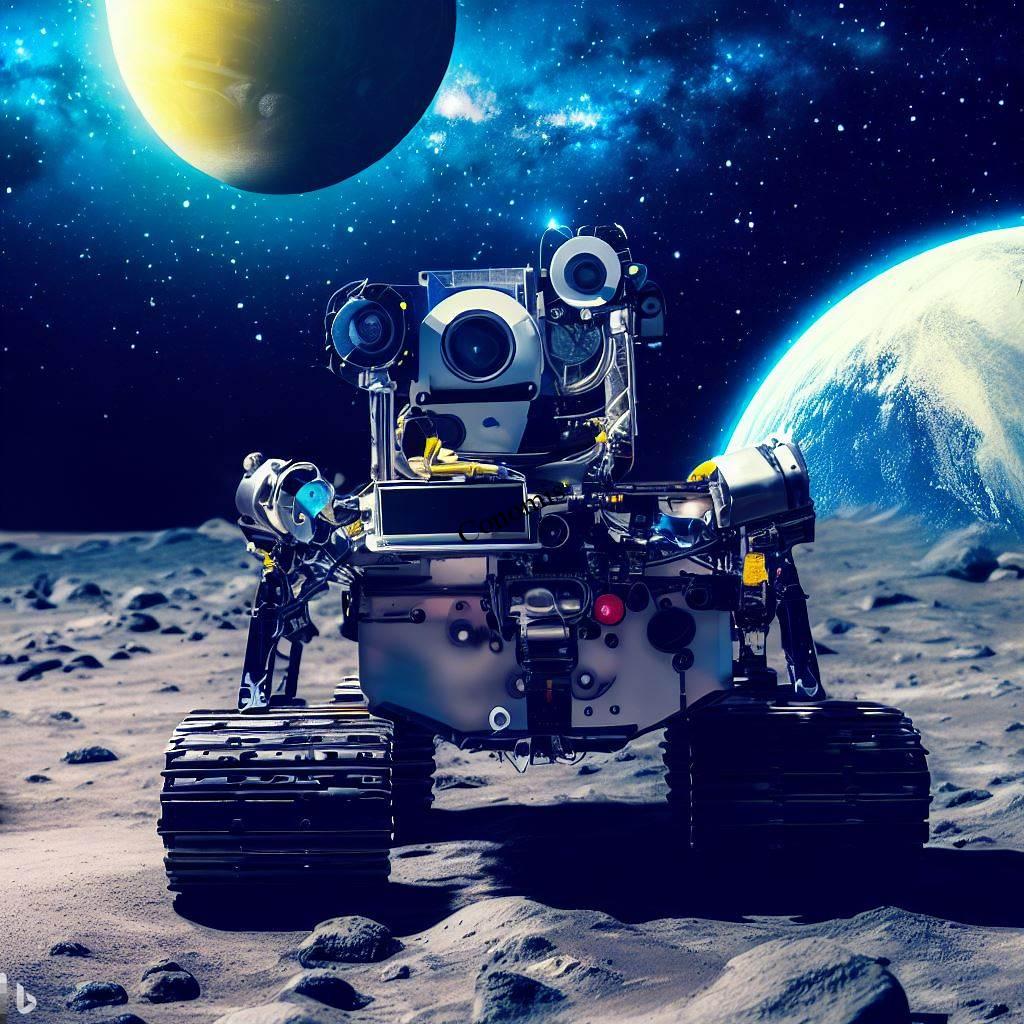
The search for extraterrestrial life is one of the most interesting aspects of space research. AI can assist in this attempt by analyzing data from missions concerned with habitable habitats and biosignatures. AI has the potential to aid scientists in their search for potential proof of life, expanding our grasp of the age-old question of whether we are alone in the universe.
Overcoming Obstacles: The Way Forward

As we approach this new era of space exploration, we will face a variety of challenges. Because safety is still the main priority, stringent measures are required to mitigate the risks associated with manned missions and space debris. International collaboration will also be required to combine resources and knowledge and assure the success and sustainability of future projects.
The application of AI and machine learning in space exploration must also include ethical considerations. To avoid unintended consequences and ensure the ethical development of space exploration, it is critical to maintain ethical norms, encourage openness, accountability, and responsible usage of AI technologies.
Conclusion

The entrance of private firms such as SpaceX has ushered in a new era of space exploration and profoundly transformed the sector. These companies bring new life and limitless promise to space exploration. Private companies run by visionary entrepreneurs like Elon Musk push the boundaries of what is possible and propel humanity into space.
As a result of the combination of artificial intelligence (AI) with the expansion of commercial businesses, new knowledge horizons have formed. With the help of AI’s powerful algorithms and data processing abilities, we can uncover the mysteries of space and gain significant insights into the cosmos.
The collaboration of commercial companies and AI has a lot to offer the future of space exploration. It lifts us to new heights while broadening our understanding and unveiling cosmic truths. Governments, businesses, and technological advancements such as artificial intelligence have all collaborated to generate the seemingly limitless opportunities for exploration and scientific discovery that lie ahead.
As we continue on this amazing journey pushed by technology, business, and scientific discovery, the future of space exploration appears more optimistic than ever. Thanks to the combined efforts of private corporations, AI integration, and human curiosity, we are set to unravel the secrets of the cosmos and begin on ground-breaking discoveries that will revolutionize how we understand the universe.
The collaborative efforts of private firms like as SpaceX, Blue Origin, and Virgin Galactic, as well as the introduction of artificial intelligence (AI), have resulted in the exciting era of space exploration that we are presently experiencing. These forces are propelling us farther into the universe, exposing its secrets and changing our experience of it. With each passing day, the prospects for exploration and scientific advancement expand tremendously.
We can expect significant advances in space exploration in the future years. Private companies will continue to push for new technologies and concepts, as well as drive innovation. It’s good that they have big goals like colonizing other planets like Mars and lowering the cost and expanding the accessibility of space travel. These efforts will inspire future generations and ensure that space exploration remains a high priority among human accomplishments.
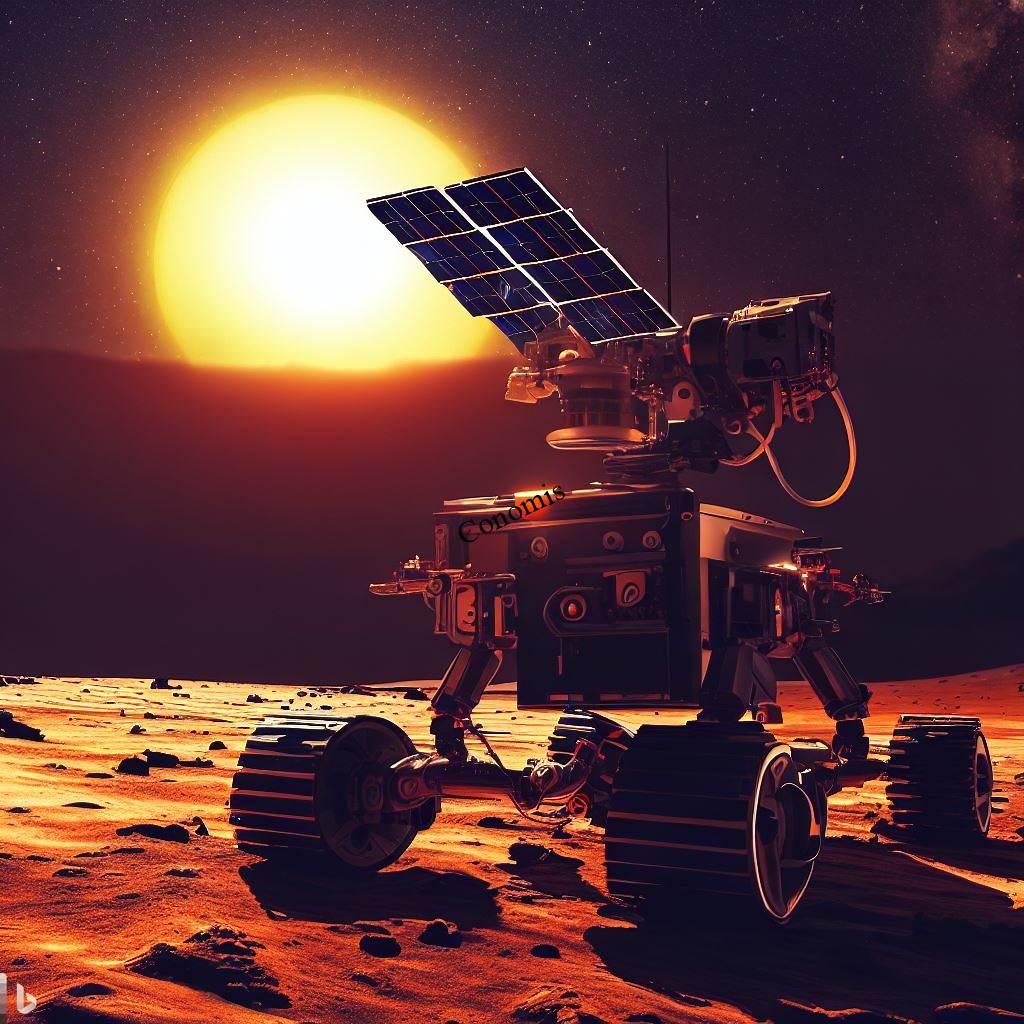
Furthermore, the use of AI into space flight will be critical in improving our knowledge and pushing the boundaries of what is feasible. Using AI-powered data analysis, we will be able to extract crucial insights from massive amounts of astronomical data, exposing hitherto unobservable hidden patterns and events. This increased understanding of the universe will radically change how we perceive the heavens, how galaxies form, and how we search for extraterrestrial life.
AI-powered autonomous spacecraft will continue to revolutionize the effectiveness and precision of space operations. These autonomous vehicles will explore the universe with more precision, leading to groundbreaking discoveries and opening up new frontiers for exploration. Working together, AI and space exploration will open up previously unimaginable possibilities and accelerate our grasp of the universe’s mysteries.
However, as we move forward in this new era, we must address a number of concerns. Safety will always be paramount, necessitating continuous breakthroughs in spacecraft design, mission protocols, and astronaut welfare. International cooperation will be critical for fostering national cooperation and exploiting a pool of resources and knowledge to tackle difficult space exploration initiatives.
The ethical implications of artificial intelligence in space exploration must also be thoroughly explored. There should be protections in place to ensure the right application of AI technology and to maintain fairness, transparency, and accountability in all aspects of space exploration.
Finally, thanks to the collaboration of private companies, artificial intelligence, and the undying human spirit of discovery, space exploration is reaching previously unfathomable heights. The future looks bright as we continue to push the boundaries of what is possible and disclose the mysteries of the cosmos through cutting-edge technology and collaborative efforts. We will discover the secrets of the universe, inspire future generations, and pave the road for a more enlightened and affluent future for humanity in the expanse of space.
FAQs
What impact has commercial enterprise had on space exploration?
The entrance of for-profit firms in the field of space exploration has promoted innovation, competition, and cost-cutting. It has accelerated growth, created new opportunities, and improved access to space for both academic and commercial operations.
What role does artificial intelligence play in space exploration?
For space travel to be successful, artificial intelligence is required. It enhances data processing, enables spacecraft to operate independently, aids in the search for extraterrestrial life, and boosts the effectiveness and precision of space missions. AI’s processing power and pattern recognition abilities enable us to make groundbreaking scientific discoveries and improve our understanding of the universe.
What role does artificial intelligence play in astronomical research?
Machine learning algorithms can analyze massive volumes of astronomical data, detect patterns, classify celestial objects, and make predictions. Machine learning accelerates research by automating these techniques, allowing researchers to obtain insights and make significant discoveries more quickly.
What challenges will future space exploration face?
Because of the inherent risks associated with space missions, as well as the need to mitigate them, safety remains a key concern. Space debris management is also critical to the long-term viability of space activities. To maintain ethical standards and avoid any negative consequences, it is also vital to address ethical concerns such as the responsible use of AI technologies and the equitable sharing of space resources.
What can we expect from future space exploration?
There is a lot of optimism about the future of space exploration. Private firms will continue to be the engine of innovation, creating new opportunities and pushing the boundaries of discovery. AI will become increasingly important as it improves data analysis, autonomous operations, and cosmic comprehension. Collaboration among nations and the continual pursuit of scientific knowledge will result in game-changing discoveries, technical advancements, and maybe game-changing breakthroughs in space exploration.
Finally, a new exhilarating era in space exploration has begun as a result of the convergence of private corporations, artificial intelligence, and the insatiable human spirit of discovery. We move across space with a renewed feeling of creation, wonder, and collaboration. Together, we will unlock the mysteries of the universe, inspire future generations, and pave the way for exceptional achievements in space exploration. We shall continue to push the boundaries of human knowledge and comprehension on our cosmic journey because the future is full of endless possibilities.
You Can Also Read
Conomis Thoughts – Unleashing the Unimaginable: Transforming the World Beyond Limits
The History of Space Exploration (nationalgeographic.org)
Artificial intelligence – Wikipedia
Conomis Thoughts
![]() Copyright 2023 CONOMIS
Copyright 2023 CONOMIS
